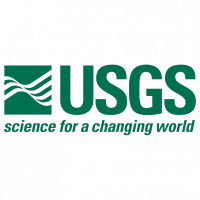Scholarships & Aid
Prospective students are strongly encouraged to complete an application for Federal Student Aid. Detailed instructions for this process for students choosing the BAS GAI degree program are included in the drop down areas below.
Students may also be eligible for a number of state-sponsored aid programs which waive or reduce tuition. Eligibility for these programs will be determined at the time of admission (you must apply to DSU first). More information about these programs is available on the RiseUp Mississippi program.
For information regarding Scholarships, visit the University Scholarships page.
How to file for Federal Student Aid
All students are strongly encouraged to file for Federal financial aid. This is accomplished by completing the Financial Assistance for Federal Student Aid process (FAFSA). This is accomplished electronically through the FAFSA portal at https://fafsa.ed.gov/ Students should take care to note the following:
- Make sure all personal information is entered as it appears on official government documentation.
- Delta State’s Federal School Code is 002403 and MDCC’s is 002416. Students must update their FAFSA each year with the Federal School Code of the institution upon which the majority of classes will be taken. The Program Manager will provide the students with guidance on the correct submission each year.
- The FAFSA will require financial information, including current balances on checking and savings accounts and information from prior year tax forms. Students are strongly advised to compile this information before beginning a FAFSA application.
- If students have completed their taxes prior to beginning the FAFSA, they should use the IRS Data Retrieval Tool (IRS DRT) offered. The IRS DRT will allow students to electronically pull completed tax information into the FAFSA.
- If a student has not completed their taxes prior to beginning the FAFSA, amounts may be estimated. However, if amounts are estimated, proof or verification may be required by the MDCC and DSU Financial Aid offices.
- The PIN serves as an electronic signature for the FAFSA. Students may create or request a PIN at pin.ed.gov. If a student lacks a PIN prior to completing the FAFSA, they will be prompted to apply for one when Sign and Submit page is reached.
Professionalizing the USMC GEOINT Workforce | Financial Aid 20
Handbook for US Marine Corps M2D GEOINT v20150421B - Federal regulations require that a student complete the requirements for one undergraduate degree within a 150% time frame. For purposes of monitoring satisfactory academic progress within this 150% period, we have assumed that 130 hours are required for an undergraduate degree; therefore, 195 hours attempted would constitute the maximum allowable hours in pursuit of an undergraduate degree. Aid may be granted for up to 195 hours of course work provided those courses are required for completion of a degree and the student remains within 195 hours attempted.
Step-by-Step: Applying for the Free Application for Federal Student Aid (FAFSA)
1. Go to https://fafsa.ed.gov/ and click on “Start A New FAFSA.”
2. Enter your student information and click Next.
3. Click “Start New FAFSA.” Note: If you have previously filed a FAFSA, you can click on “FAFSA Renewal.” This will pre-fill most of the questions for you.
4. Create a Password and click Next.
5. Complete the Student Demographic section, then click Next.
6. Enter the Federal School Code (Delta State’s Federal School Code is 002403 and MDCC’s is 002416) and press add. Click Next once you add the correct school (MDCC will be the code to add for your first year).
7. Fill out the Dependency Information section and click Next.
8. If you are determined to be an independent student, you will not need to enter parent information.
9. Fill out the Student Financial Information and click Next.
10. When filling out the Student Financial Information section of the FAFSA, you will need your prior year’s tax information.
11. The FAFSA will allow you to skip the Asset Information section; however, please do not skip this section.
12. Once all the information has been entered into the FAFSA, you will need to sign the FAFSA electronically and click on “SUBMIT MY FAFSA NOW.”
13. Once your FAFSA is completed, the Department of Education will send you a Student Aid Report (SAR) either electronically or by mail. The SAR is a summary of the information you provided on the FAFSA.
Professionalizing the USMC GEOINT Workforce | Financial Aid 21
Handbook for US Marine Corps M2D GEOINT v20150421B
Note: All students applying for financial aid should fill out the Supplemental Awarding Information Form prior to MDCC and DSU receiving the FAFSA. This form is required for all students. This form, and any other requested forms, may be found by following these steps:
1. Go to www.deltastate.edu.
2. Click on QUICKLINKS at the top of the page.
3. Click on Financial Aid under Attending DSU.
4. Click on Forms button at the right hand side of the page.
5. Click on the requested form
6. Print it out
7. Fill it out
8. Fax it to 662-846-4683 OR scan and email it to finaid@deltastate.edu
Once all required documentation has been received by the financial aid office, DSU will review the financial aid application. Note: If additional forms are needed, the student will be e-mailed.
An award letter will be mailed to the student to notify them of how much grant, loan, and/or work study they are eligible to receive.
If a student wants to decline part of their financial aid package, he or she will need to notify the Program Manager (cdsmith@deltastate.edu).
DSU strives to provide every student with the resources available for financial aid. Federal grants may be applied for through FAFSA. Students will need to meet certain requirements to be eligible for the grants.
Students must be aware that MDCC does not offer Federal student loans. Student loans are available through local and national lenders to assist with costs during this phase of their education.
Delta State University and Mississippi Delta Community College will receive the processed FAFSA within two-weeks of submission. DSU and MDCC will review the information and determine if additional documentation is needed. If so, the Program Manager will make contact via e-mail to alert the student that a formal request is in the mail and must be responded to in a timely fashion.
Employment & Engagement
Cooperative Education
Cooperative education is a vital part of the Center. Talented students are identified by faculty during either the Introduction to Geographic Information Systems and Science or Introduction to Remote Sensing courses. Students are then matched with sponsored projects underway at the Center. Student employees typically earn $8 – $10 an hour during a probationary period, but then are rapidly raised based upon their abilities. Some students have earned as much as $17 an hour while working here and managed $500,000 budgets!
The work environment provides many added bonuses as students are assigned a workstation in our production lab, given keys to the facility, and provided access to all of our servers, drones, camera systems, GPS equipment, and more. They are encouraged to explore the discipline and work on creative solutions for the projects to which they are assigned. They are also allowed to keep flexible schedules – work is goal-based and not merely about punching a clock.
Student Engagement
Students are also strongly encouraged to travel with faculty, become engaged in the contracting/RFP processes, and involved in similar geospatial business activities. We will provide the opportunities. It is up to our students to avail themselves of the incredible breadth of opportunities available.
International Opportunities
The Center is active on an international stage and our students are an integral part of what we do in this regard. Current opportunities include:
Republic of Georgia
The Center was invited to meet with representatives of the Georgian government and state university system after devastating landslides struck Tbilisi, Georgia in 2015. A memorandum of understanding between DSU and Akaki Tsereteli State University (ATSU) was drawn up to promote an international cultural and student exchange program and collaborative research and development. Several new projects are under development as part of this new and exciting opportunity.
Vietnam and Laos
The United Nations Platform for Space-based Information for Disaster Management and Emergency Response is an active partner with the Center. Our faculty serves as experts on technical advisory missions to Laos and Vietnam in an effort to help those countries develop their capacity for using spatial technologies during times of crisis. Furthermore, representatives from both countries visit the Center and participate in our training and workshop activities each year.
United Arab Emirates
The center’s faculty are regularly contracted to provide training courses and workshops in the UAE. Advanced students are able to travel and help facilitate courses by acting as teaching assistants.
Japan, Australia, and New Zealand
The Center is an active Educational Affiliate with the Geospatial Information and Technology Association (GITA). GITA has international chapters in Japan, Australia, and New Zealand and students are actively encouraged to work with GITA and their international exchange and internship programs.

No Out-of-State Fees

USGS and NGA Center of Academic Excellence in Geosciences

Signature Program at Delta State
GET IN TOUCH
Talbot J. Brooks, Director
662.846.4520
tbrooks@deltastate.edu
Chris Smith, Program Manager
662.846.4521
cdsmith@deltastate.edu
Mailing Address
GIT Center
Delta State University
Box 3325
Cleveland, MS 38733-3325
Shipping Address
GIT Center
Delta State University
1417 Maple St.
Cleveland, MS 38733
Physical Address
GIT Center
Kethley Hall, Suite E
Delta State University
US National Grid
15SYT098364




